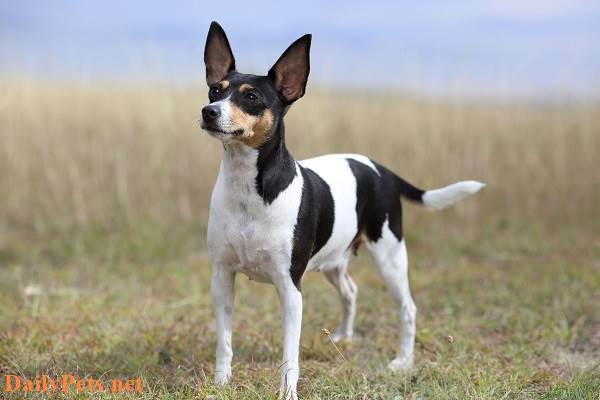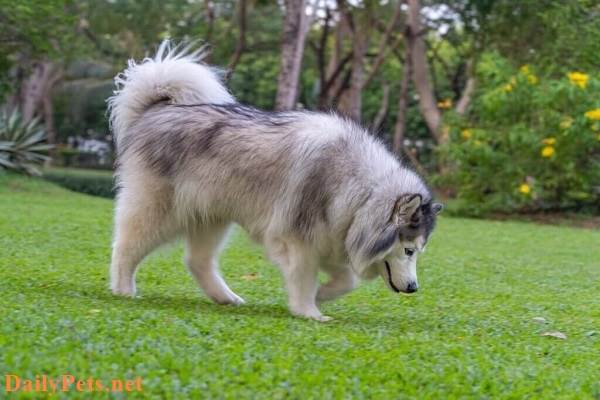The miniature Schnauzer dog breed is among the world’s 20 most intelligent. Let’s learn more about this breed with DailyPets.net.
Miniature Schnauzer Dog origin
Miniature Schnauzers were originally bred in Germany in the late 19th century as small farm dogs to repel rats and other vermin. It is believed to be a cross between an Affenpinscher and a Poodle with a small Standard Schnauzer. The name “Schnauzer” in German means “little beard” and originates from a show dog of this name in 1879.
In 1933, the American Kennel Club officially recognized the Miniature Schnauzer and Standard Schnauzer as separate breeds. The Miniature Schnauzer is recognized as belonging to the Terrier group in the United States, while it is part of the Utility group in the UK.

Miniature Schnauzer Dog.
Although much newer than Standard or Giant Schnauzers, Miniatures are currently the most popular Schnauzer breed and have been around since shortly after World War II.
At the peak of its popularity, the Miniature Schnauzer was the third most popular dog breed in the United States. In the most recent rankings, the Miniature Schnauzer ranked 17th among the most popular dog breeds and has always been a favorite among dog owners.
Miniature Schnauzer dog appearance characteristics
Miniature Schnauzers are sturdy and don’t look like toy dogs. They are usually 30-35.5cm tall at the shoulder. Weight ranges from 4.9 to 9kg.

With playful, inquisitive ears and a shaggy face, the Miniature Schnauzer is a lively little dog almost always on the move. This breed has dark brown eyes, a black nose, and a straight, erect tail. Their color combinations are salt and pepper, black and silver, or one shade of black.
Ears: Miniature Schnauzer ears are pointed and stick up into the air when clipped. The uncut ears lie close to the head.
Eyes: Schnauzer eyes are small, dark brown, bright, oval-shaped and deep-set.
Nose: Their nose is black.
The Miniature Schnauzer has a medium-length double coat or two coats: a hard, shaggy top coat and a soft undercoat. Coat color: The coat comes in three color combinations, including salt and pepper (meaning banded fibers), black and silver, and jet black.
Tail: The Miniature Schnauzer’s tail is short and erect.
Miniature Schnauzer dog personality traits
Miniature Schnauzers are generally polite and cheerful dogs, making them a great breed for most families. They are loyal companions, playful, curious, alert, and love to be the center of attention. Because of this tendency, they should be provided with constant exercise activities.
Because of their big personalities and need for exercise, they will want to participate in everything you and your family do. The Schnauzer will follow you around the house and never wants to be left alone. This breed always wants to know what you are doing.
They tend to bark loudly, but dog training can overcome this behavior.
Mini Schnauzers are also extremely intelligent and known to get into mischief if allowed. They will quickly learn to open the cupboard to get their favorite food, toy, or even shoes. Because they like to be the center of attention, they also like to be in control. But with proper training, they can become more docile and make great pets for active families.
How to care for Miniature Schnauzer dogs
Feeding
Always have clean water available for Miniature Schnauzer dogs; Feed them a nutritionally balanced, high-quality dog diet. It is normal to feed two meals a day. However, you should discuss the amount and type of diet with your veterinarian to ensure you meet your dog’s needs. Also, be mindful of other snacks and foods to avoid overeating.
Since Miniature Schnauzers tend to have high levels of fat (hyperlipidemia), some may need a special diet to help control their fat. A veterinarian should always prescribe this.
Health care
Miniature Schnauzers are generally healthy and can live 12 – 15 years, but like all dog breeds, they can suffer from certain health conditions. Not all Miniature Schnauzers have any or all of these diseases, but it is important to know about them if you are considering getting this breed.
– Pancreatitis: Pancreatitis is a serious condition caused by obesity, hypothyroidism, or genetic predisposition. In some cases, the Miniature Schnauzer requires hospitalization and intensive medical care.
– Diabetes: Miniature Schnauzers are more likely to be diagnosed with diabetes than other dog breeds. It can be caused by a pre-existing condition, such as pancreatitis, obesity, Cushing’s disease, or genetics. Diabetes in dogs often requires dietary changes and insulin treatment.
– Bladder stones: Often caused by diet or other conditions in the bladder, such as bladder infections. Symptoms include urinary accidents, straining to urinate, and blood in the urine. If your Miniature Schnauzer has bladder stones, they may need surgery to remove them. Dietary changes may be necessary after surgery to prevent more stones from developing.
– Myotonia: Myotonia congenita is an inherited muscle disorder that causes the Schnauzer’s muscles to contract constantly. A DNA test will show whether your dog or their parents are carriers of the myotonia gene. This condition can be managed with medication.
– Von Willebrand Disease: If a Miniature Schnauzer has this genetic condition, their blood cannot clot normally (similar to hemophilia in humans). Treatment needs vary depending on the severity of the condition but may include a blood transfusion.
Hair care and hygiene
Brush your Miniature Schnauzer’s fur twice or thrice a week to keep it from matting, especially the longer hair on the face and legs. Be sure to check their underarms, as this is where thick clumps of hair often form. You should also wash their beards and edges after eating.
Brush your Miniature Schnauzer’s teeth twice or thrice weekly to remove tartar buildup and bacteria lurking inside. Daily brushing is even better to prevent gum disease and bad breath.
Trim the Miniature Schnauzer’s nails once or twice a month if your dog doesn’t abrade them naturally to prevent painful lacerations and other problems. If you can hear them clack on the floor, their nails are too long. Your dog’s toenails have blood vessels, and if you cut too far, you could cause bleeding — and your dog may not cooperate the next time he sees nail clippers. So, if you don’t have experience cutting your dog’s nails, ask your veterinarian or groomer for instructions.
The Miniature Schnauzer’s ears should be checked weekly for redness or a foul odor, which could be a sign of an infection. When you check your dog’s ears, clean them with a cotton ball soaked in a gentle, pH-balanced ear cleaner to help prevent infection. Do not insert anything into the ear canal; Just clean the outer ear.
Start getting familiar with grooming and check out your Miniature Schnauzer when it’s still a puppy. Touch its paws often – dogs are very sensitive to their paws – and look inside its mouth. Make grooming a positive experience with plenty of praise and rewards, and you’ll lay the foundation for easy veterinary checkups and other treatments as they mature.
As you groom your Miniature Schnauzer, check for sores, rashes, or signs of infection such as redness, pain, or inflammation on the skin, nose, mouth, eyes, and paws. Right eye clear, no redness or discharge. Your weekly careful checkups will help you spot potential health problems early.
Training and exercise
The Miniature Schnauzer is active indoors, playing with toys and following you from room to room. Children like to have a yard to play in, but it’s okay if there is no yard; you just need to take them for a walk outside. Children need 45 minutes of exercise daily.
House crate training benefits every dog and is a way to ensure that your Schnauzer doesn’t have accidents in the house or get into things he shouldn’t. A house is also a place to retreat to take a nap. House and crate training at a young age will help your Miniature Schnauzer accept being “confined” if it needs to be taken far away, like on a plane or to the hospital.
However, never keep your dog in a crate all day. It’s not a prison, and they shouldn’t be in there for more than a few hours unless that’s when they sleep at night.
Habitat
Miniature Schnauzers are affectionate dogs and make great family pets. These puppies are often great with children and babies. Their mischievous antics will delight children. Miniature Schnauzers are also usually friendly with other dogs and cats.
The Miniature Schnauzer is highly adaptable, making it a great choice if you live in a small apartment or city. As long as you can give your dog the daily exercise he needs, he will be perfectly happy staying with you in a small city apartment.
Miniature Schnauzer price
The price of a Miniature Schnauzer can vary widely depending on various factors, including the dog’s age, pedigree, location, and the breeder’s reputation.
On average, you can expect to pay anywhere from $800 to $3,000 or more for a Miniature Schnauzer puppy from a reputable breeder. Show-quality or pedigree puppies with desirable traits may be on the higher end of this price range.





